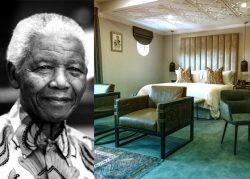A judge temporarily halted construction of Amazon’s first Africa headquarters, in Cape Town, saying the developer didn’t properly consult Indigenous people about building on sacred ground.
Judge Patricia Goliath of the Western Cape High Court said the consultation process for the project, a $300 million development on a former golf course, was biased because it omitted many Indigenous groups, the New York Times reported. She ordered work to be stopped and said its owner must talk again with Indigenous people.
Fundamental rights of Indigenous groups are “under threat in the absence of proper consultation,” she wrote.
The 37-acre River Club, approved last year by city and Western Cape officials, would include a hotel, retail, offices and homes, with Amazon – which employs thousands of people in local data hubs – as its anchor tenant. An extended delay could cripple the project, whose construction began last year because Amazon could pull out, according to court testimony in January from a lawyer for the property’s owner, Liesbeek Leisure Property Trust.
Government agencies had raised concern prior to its approval that the developer hadn’t vetted the views of Indigenous people, or the ways it would diminish the heritage value of the site. Courts review decisions made by the city and province to determine whether they’re legally valid.
A First Nations organization and a local residents’ association sued to overturn the project approvals, and requested construction be stopped while the case was pending. Critics held numerous protests after it was cleared.
The site is widely believed to be where Indigenous South Africans first fought colonial invaders. Some Indigenous leaders consider the mixed-use development to be a desecration, though other communities pointed to the heritage center also planned for the site.
Liesbeek Leisure said it was “deeply disappointed” by the judge’s decision, and that it was considering legal options. A spokesman for Amazon didn’t respond to requests for comment by the New York Times.
Cape Town officials last year celebrated Amazon’s decision to choose Cape Town as “a base of operations on the African continent.” They said the development would create 19,000 jobs, almost 500,000 square feet of residential and commercial space, and bolster the region as a technology hub.
[New York Times] – Dana Bartholomew
Read more


